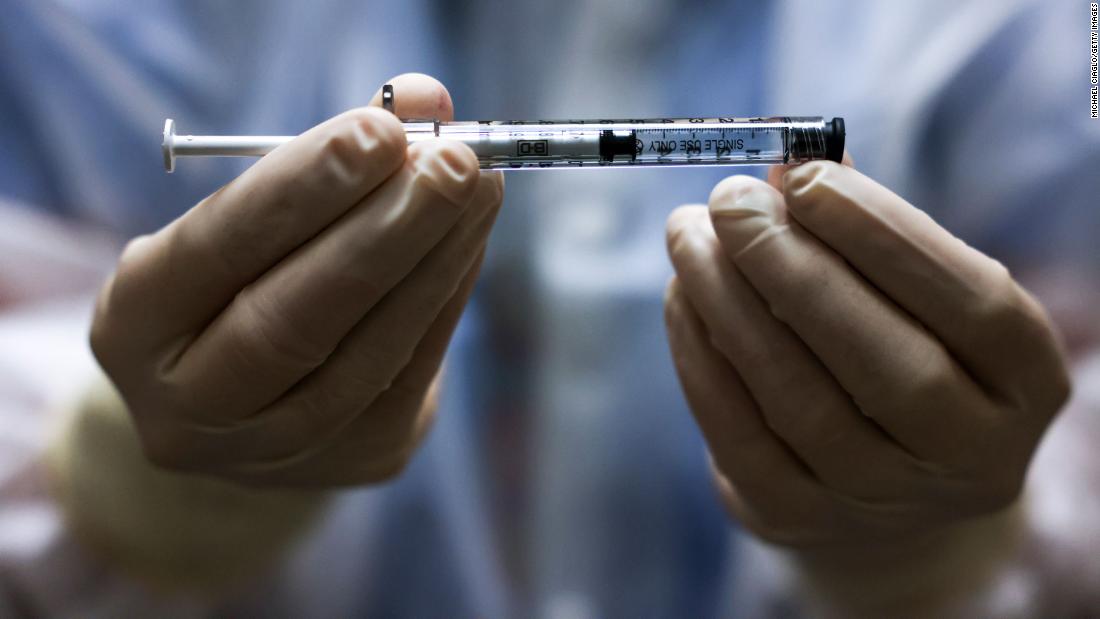The company expects to report details on more advanced trials later this month and hopes to apply to the U.S. Food and Drug Administration soon.
Researchers who tested the vaccine in a combined phase 1-2 trial – mostly intended to show safety – found that one or two doses of the vaccine generate both antibody and T cell responses to the coronavirus. The trials are not designed to show whether the vaccine protects people against coronavirus infection or symptoms – this is what the current phase 3 trials are designed to do.
The researchers – in the Netherlands, the United States and Belgium – tested the vaccine in a group of people aged 65 and older and a group of 18 to 55 years.
Vaccination elicited neutralizing antibodies – which were expected to prevent the virus from infecting cells – in 90% of all participants by the 29th day after the first dose and in all two months after the first dose. The levels of these antibodies remained stable for at least 71 days.
The FDA has given permission for emergency use of two coronavirus vaccines – one made by Pfizer with its partner BioNTech, and one by Moderna. Both were approximately 95% effective in preventing symptomatic diseases in their phase 3 trials. They use messenger RNA or mRNA – a new vaccine technology.
Johnson & Johnson’s vaccine arm, Janssen, uses a different approach to the vaccine, currently known by its experimental name, Ad26.COV2.S. It uses an attenuated version of a cold virus called adenovirus 26 to transport genetic material from the virus to the body, causing human cells to produce pieces of the virus which are then recognized by the immune system.
“A single dose of Ad26.COV2.S elicited a strong humoral response in a majority of vaccine recipients, with the presence of S-binding and neutralizing antibodies in more than 90% of participants, regardless of age group or vaccine dose,” wrote the researchers.
“An effective single-dose Covid-19 vaccine has clear logistical advantages over a two-dose vaccine, especially during a pandemic.” The company is investigating whether a second dose increases the effectiveness or durability of the immune response.
Side effects include headache, body aches and, more rarely, fever.
“The company plans to release Phase 3 data for its single-dose Janssen COVID-19 vaccine candidate at the end of January 2021. However, since this trial is contingent on disease events, the timing is approximate,” Johnson and Johnson said in a statement. said a statement. But with the pandemic raging in the U.S. and Europe, vaccine experts say, answers are coming fast for vaccination trials.
“If the single-dose vaccine is proven to be safe and effective, the company expects to submit an emergency approval application to the U.S. Food and Drug Administration shortly thereafter, after which other regulatory applications around the world will apply. be done, “Johnson said. & Johnson added.
All the companies that make coronavirus vaccine have produced doses, even if they have tested them, so that they can roll them out directly to humans if they get FDA approval. Johnson & Johnson has been contracted to deliver 100 million doses to the US government if it wins EUA from the FDA.
However, the New York Times reported on Wednesday that Johnson & Johnson was behind schedule in its production.
“The pandemic is showing no signs of slowing down, and we are, like everyone, eager to help more aid stop it. “We do not have Phase 3 data yet, nor have we submitted or granted an emergency use permit,” Johnson & Johnson said in a statement on Wednesday.
“We remain active in discussions with regulators, including on the approval and validation of our manufacturing processes.”
